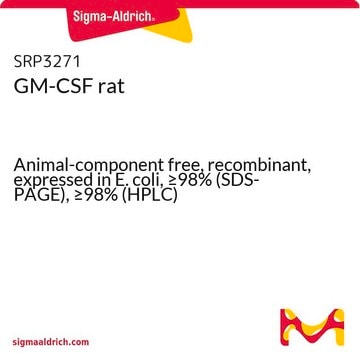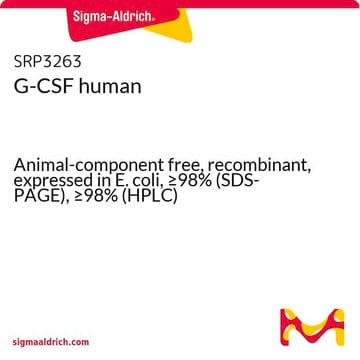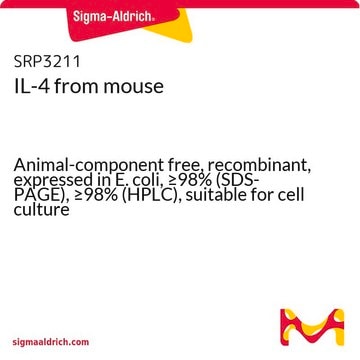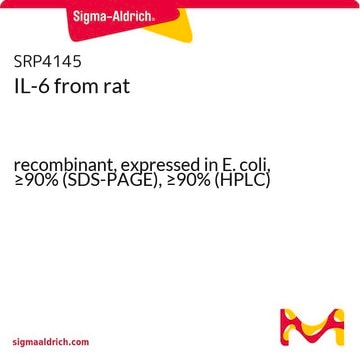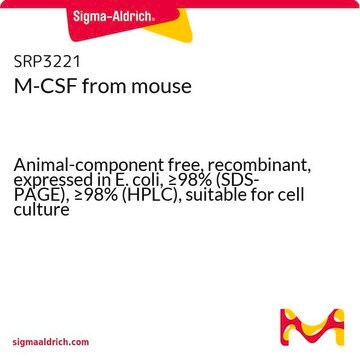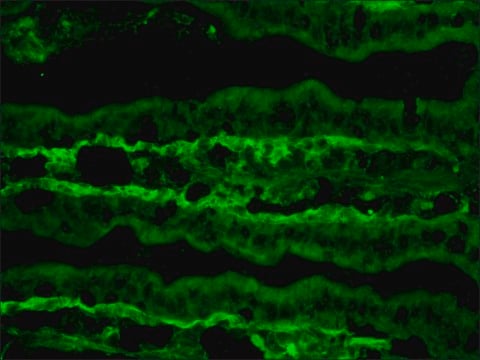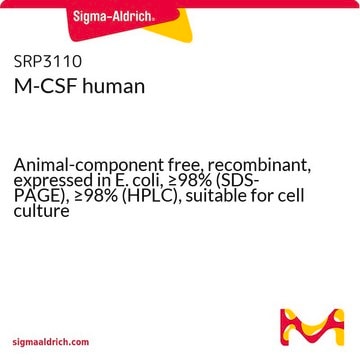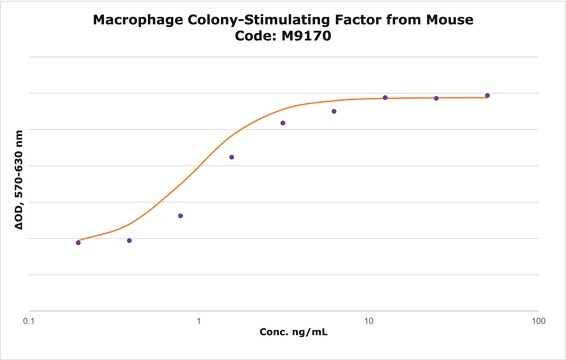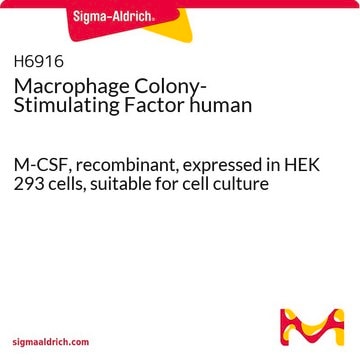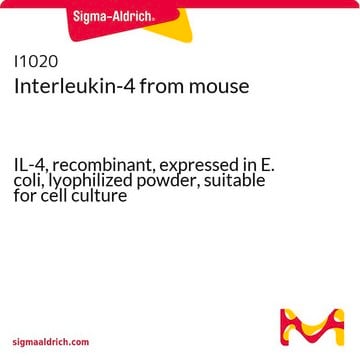SRP3201
GM-CSF from mouse
Animal-component free, recombinant, expressed in E. coli, ≥98% (SDS-PAGE), ≥98% (HPLC), suitable for cell culture
Sinónimos:
CSF-2, MGI-1GM, pluripoietin-?
About This Item
Productos recomendados
origen biológico
mouse
recombinante
expressed in E. coli
Análisis
≥98% (HPLC)
≥98% (SDS-PAGE)
formulario
lyophilized
potencia
≤0.05 ng/mL
mol peso
14.2 kDa
envase
pkg of 20 μg
técnicas
cell culture | mammalian: suitable
impurezas
<0.1 EU/μg endotoxin, tested
color
white to off-white
Nº de acceso UniProt
Condiciones de envío
wet ice
temp. de almacenamiento
−20°C
Información sobre el gen
mouse ... CSF2(12981)
Descripción general
Aplicación
Acciones bioquímicas o fisiológicas
Secuencia
Forma física
Reconstitución
Palabra de señalización
Danger
Frases de peligro
Clasificaciones de peligro
Eye Dam. 1 - Skin Corr. 1B
Código de clase de almacenamiento
8A - Combustible corrosive hazardous materials
Clase de riesgo para el agua (WGK)
WGK 3
Punto de inflamabilidad (°F)
Not applicable
Punto de inflamabilidad (°C)
Not applicable
Certificados de análisis (COA)
Busque Certificados de análisis (COA) introduciendo el número de lote del producto. Los números de lote se encuentran en la etiqueta del producto después de las palabras «Lot» o «Batch»
¿Ya tiene este producto?
Encuentre la documentación para los productos que ha comprado recientemente en la Biblioteca de documentos.
Los clientes también vieron
Nuestro equipo de científicos tiene experiencia en todas las áreas de investigación: Ciencias de la vida, Ciencia de los materiales, Síntesis química, Cromatografía, Analítica y muchas otras.
Póngase en contacto con el Servicio técnico
